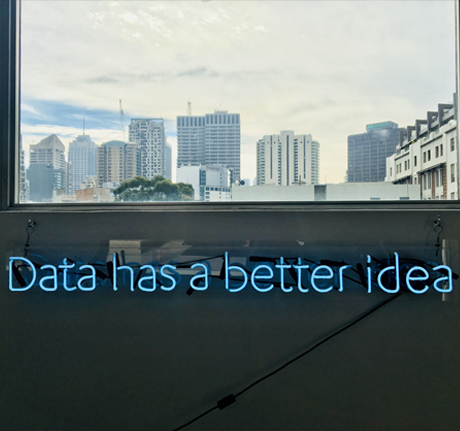Algorithms and decision making are at the bleeding edge of business research today, and with good reason.
More and more, scientists are beginning to realise how much our thinking is affected by unconscious psychological factors.
This applies even to the most hard-headed of us.
Here’s the bottom line: if you’re not using algorithms to make business decisions, you’re making bad decisions.
Intrigued? Read on.
The cup of hot coffee
Everyone knows that decisions can be influenced by clever marketing and advertising, but the science of influence is weirder than you realise.
In one experiment, participants who briefly held a cup of hot coffee (as opposed to iced coffee) were more likely to judge a person they met as warm, generous and caring.
You probably think you’re logical and unemotional when it comes to business decisions, but factors like the hot coffee effect probably cloud your decision making every day.
That’s where algorithms and decision making really come into their own.
What is an algorithm, anyway?
The algorithm is an idea from maths and computer science. It’s essentially a step-by-step set of instructions which you follow to get to a particular goal.
Sure, you can use algorithms to process your computer data, but you can also take an algorithmic approach to any business decision.
An algorithmic approach will help you make decisions consistently, logically, and by taking account of all the relevant information.
Algorithms in medicine
Medicine is usually described as part science and part artistry.
This is because an experienced doctor will often sense when something is wrong with a patient, but can find the reasons behind their feeling hard to explain.
Frequently this intuition works out, and sometimes not, so a lot of work has gone into studying the science behind medical decision making.
It’s used to develop techniques which help even inexperienced doctors arrive at the right decision most of the time.
As a result, there are now lots of medical algorithms based on hard data. They’re used for diagnosis, as well as for choosing the best treatment.
Algorithms for cheap airline tickets
Anyone who’s ever booked an airline ticket knows that the price of flights varies wildly. It tends to depend on when you travel, and how far in advance you book.
All airlines use sophisticated algorithms to set seat prices so as to maximise their profits. But now it’s time for the consumer to make a counter-attack, with the help of algorithms and decision making know-how.
Recently, a Czech start-up called Skypicker developed an app powered by an algorithm which, it is claimed, can find airline fares up to 90% lower than those booked through the usual channels.
Algorithms and decision making for your business
Whatever your business, there’s likely to be at least some areas where algorithms can improve your efficiency, and ultimately your profitability.
Recruitment is the most challenging area for SMEs.
It takes time and effort to shortlist candidates for interview, especially if their CVs boast near-identical qualifications.
Even worse, interviews are a notoriously unreliable way of finding great employees.
What if you’re holding a hot cup of coffee when you meet one candidate, and a cold drink when you’re talking to another?
Better decision making with TFP
With Top Five Percent, you can bring the latest advances in algorithms and decision making to work for your business, even if you’re not a large corporation.
And you should, because if you’re not using algorithms to hire, you won’t get the best staff in the long run.
As the prizewinning behavioural economist Daniel Kahneman says, when you’re recruiting, you trust your gut at your peril.
But why would you trust your gut when TFP’s a much better way to make hiring decisions?
https://www.theguardian.com/lifeandstyle/wordofmouth/2014/oct/28/hot-drinks-science-tasting-notes
https://www.businessinsider.com/skypicker-czech-startup-that-finds-hidden-cheap-flights-2015-5?r=UK
https://www.theguardian.com/lifeandstyle/2015/nov/22/why-job-interviews-are-pointless
https://www.businessinsider.com/daniel-kahneman-on-hiring-decisions-2013-1?IR=T


